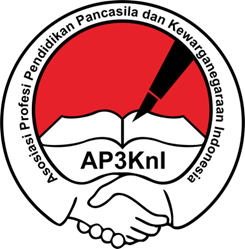The Moderating Role of Knowledge in The Effect of News Access on Students’ Political Participation in Makassar
DOI: https://doi.org/10.26618/jed.v8i1.9644
Online Political Participation, Offline Political Participation, Political Knowledge, News Access
Abstract
The 2019 student protests prompt the question of whether access to political news affects political participation, with political knowledge serving as a moderating factor. It is suggested that access to political news, as a source of political education for students, may have an impact on political participation. When students who are well-informed have access to political news, they are likely to engage in higher levels of political participation, with political knowledge acting as a moderating variable in this relationship. This study aims to investigate the relationship between access to political news, political knowledge, and political participation (both online and offline) among students. This is the first time that political knowledge is being analyzed as a factor that may amplify the effect of access to political news on participation. This study is a quantitative survey research that was administered to 465 students in Makassar. Of the participants, 64.7% were female (N = 301) and 35.3% were male (N = 164) with an average age of 20.54 (SD = 1.80). The data was analyzed using multiple regression analysis by entering predictor variables and interaction variables, where the predictor variable is multiplied to determine the moderating effect of each predictor on the outcome variable. It found that access to political news is a significant predictor of both types of political participation, and that political knowledge moderates this relationship. This study conluded that political knowledge can act as a counter to potentially misleading information and news, furthermore with sufficient knowledge accumulation will result in real participation, both online and offline.References
Alami, A., & Kotamjani, S. S. (2019). Examining the Impact of Using Social networks on Political Knowledge and Political Attitude by Iranian University Student . Malaysian Journal of Communication, 35(3), 125-140.
Bakker, T. P., & deVreese, C. H. (2011). Good news for the future? Young people, internet use, and political participation. Communication Research, 38(4), 451-470. doi:https://doi.org/10.1177/0093650210381738.
Damarjati, D. (2019, December 31). 2019 Tahunnya Aksi Massa: Mahasiswa-Pelajar Demo di mana-mana. Retrieved February 9, 2020, from detikNews: https://news.detik.com/berita/d-4841956/2019-tahunnya-aksi-massa-mahasiswa-pelajar-demo-di-mana-mana
Field, A. (2009). Discovering statistics using IBM SPSS statistics. London: Sage.
Fitri, N. (2012). Resolusi Konflik Mengatasi Demonstrasi Anarki Mahasiswa (Studi Kasus Perguruan Tinggi Islam Makassar). Jakarta: UIN.
Gil de Zuniga, H., Jung, N., & Valenzuela, S. (2012). Social media use for news and individuals' social capital, civic engagement and political participation. Journal of Computer-Mediated Communication, 17(3), 319-336. doi:https://doi.org/10.1111.
Gil de Zúñiga, H., Molyneux, L., & Zheng, P. (2014). Social media, political expression, and political participation: Panel analysis of lagged and concurrent relationships. Journal of communication, 64(4), 612-634.
Hasse, J. (2012). Anarkisme Demonstrasi Mahasiswa:Studi Kasus Pada Universitas Islam Negeri Alauddin Makassar. Jurnal Studi Pemerintahan Vol.3 No.1 Februari, 49-70 http://dx.doi.org/10.18196/jgp.2012.0004.
Hoffman, L. H. (2019). Political Knowledge and Communication. Oxford Research Encyclopedias: Communication, DOI: 10.1093/acrefore/9780190228613.013.109.
Holt, K., Shehata, A., Stromback, J., & Ljungberg, E. (2013). Age and the effects of news media attention and social media use on political interest and participation: Do social media function as leveller? European Journal of Communication, 2, 19-34. doi:10.1177/0267323112465369.
Jiwandono, I. S. (2020). Dinamika Sosial Sikap Narcisstic Aksi Demonstrasi Mahasiswa dalam Prospek Demokrasi Indonesia. Equilibrium: Jurnal Pendidikan 8 (1), 34-40.
Jung, N., Kim, Y., & De Zúniga, H. G. (2011). The mediating role of knowledge and efficacy in the effects of communication on political participation. Mass Communication and Society, 14(4), 407-430.
Lee, Y. H., & Hsieh, G. (2013). Does Slacktivism Hurt Activism?: The Effects of Moral Balancing and Consistency in Online Activism. SIGCHI Conference in Human Factors in Computing System (pp. 811-820). Paris: SIGCHI.
Lindawati, L. (2015). Pola Akses Berita Online Kaum Muda. Jurnal Studi Pemuda Vol 4, No 1 , 241-259 https://doi.org/10.22146/studipemudaugm.36734.
Marijan, K., & Fitrianto, H. (2013). Anatomi Kekerasan Mahasiswa di Makassar. Jurnal Review Politik 3 (1), 1-27.
Muhajir, A., & Susanti, D. (2018). Persepsi Masyarakat Terhadap Perilaku Demonstrasi Mahasiswa Universitas Muhammadiyah Makassar. Jurnal Etika Demokrasi Vol 3, No 2, 95-100.
Neundorf, A., & Smets, K. (2017). Political Socialization and the Making of Citizen. Political Science and Behavior, 10.1093/oxfordhb/9780199935307.013.98.
Nugraheni, A. Y. (2017). Pengaruh Pengetahuan Politik dan Aktor Politik Terhadap Partisipasi Politik Masyarakat Desa Trimurti, Srandakan, Bantul, Pada Pilkada 2015 (Skripsi). Yogyakarta: Universitas Negeri Yogyakarya.
Pandey, V., Gupta, S., & Chattopadhyay, M. (2020). A framework for understanding citizens’ political participation in social media. Information Technology & People, Vol. 33 No. 4, 1053-1075. https://doi.org/10.1108/ITP-03-2018-0140.
Primadi, A. (2013). Konstruksi Kekerasan Politik Mahasiswa Makassar. Surabaya: Universitas Airlangga.
Reichert, F. (2016). How internal political efficacy translates political knowledge into participation: Evidence from Germany. Europe's Journal of Psychology, 12(2), 221, htttps://www.ncbi.nlm.nih.gov/pmc/articles/PMC4894.
Rosemarwati, T. U., & Lindawati, L. (2019). Penggunaan Media Sosial sebagai Sumber Berita oleh Jurnalis Media Daring di Indonesia. Jurnal Studi Komunikasi dan Media, 101-114 DOI: http://dx.doi.org/10.31445/jskm.2019.1744.
Tim Peneliti KANOPI FEB UI; Tim Peneliti KSM Eka Prasetya UI . (2019). Di Balik Aksi Demonstrasi Mahasiswa: Pengaruh Media Sosial terhadap Prilaku Politik. Jurnal KSM Eka Prasetya UI 1(1), 1-23.
Van Deth, J. W. (2016, November). What is Political Participation? . Retrieved from Oxford Research Encyclopedias: DOI: 10.1093/acrefore/9780190228637.013.68.
we are social & Hootsuite. (2020, February 18). Digital 2020. (S. Kemp, Ed.) Retrieved October 10, 2020, from Datareportal: https://datareportal.com/reports/digital-2020-indonesia
Winarno, S. (2019, September 28). Efek Echo Chamber Demonstrasi. Retrieved May 28, 2020, from JawaPos.com: https://www.jawapos.com/opini/28/09/19/efek-echo-camber-demonstrasi/
Yusuf, R. I. (2013). Citizen Journalism on the Twittersphere: The Shift From Alternative Journalism to Citizen Journalism. Tilburg: Tilburg University.
Yusuf, R. I. (2022). Komunikasi politik: seni dan teori. Jogjakarta: Deepublish.



